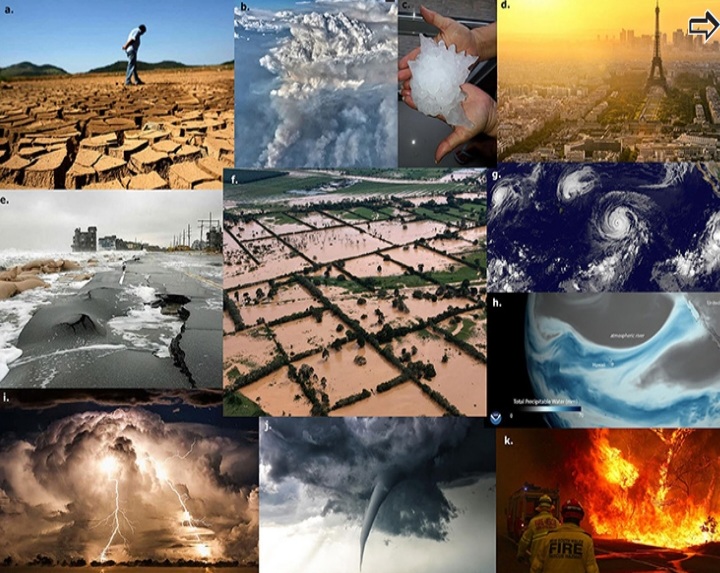Major Climate Change Events in 2023

By Faridat Salifu
Africa faced a myriad of challenges that significantly shaped the continent for the outgoing year, 2023.
No doubt, the year was greeted by increasing climate-related disasters, economic crises, and political instability.
For instance no fewer than five West and Central African countries, including Niger, Sudan, Guinea, Mali and Burkina Faso saw the military over throw their democratically elected governments.
The military intervention in these countries negatively impacted economic activities.
In Niger, for instance, the Economic Communities of West African States, ECOWAS, suspended relations with Niger and closed their land and air borders with the country after warnings to General Abdourahamane Tchiani to restore power failed.
According to a report from the Amnesty international, the lives of over four million Nigeriens hanged in the balance and there was no access to humanitarian aid, amid economic hardship and hunger.
Also, Horn of Africa countries such as Ethiopia, Somalia and Kenya experienced the worst drought in four decades.
Reports say the unrelenting drought that devastated the region left more than 20 million people to face acute food shortages, as a result of climate change.
It was learnt that the drought in the Horn of Africa, also led to a staggering number of deaths.
Additionally, cyclones ravaged Malawi and Mozambique, while drought in southern Angola posed a threat to pregnant women.
Nigeria, giants of Africa is not left out. More persons faced economic hardship due to negative economic policy that led to increment in prices of petroleum products. This was further heightened by natural disasters such as flooding, which destroyed crops across most states.
A United Nations Child Education Fund (UNICEF), indicated that.no fewer than 28 million Nigerians suffered hunger in 2023 as a result of food shortages occasioned by climate change.
Checks by NatureNews revealed many low income earners were unable to adequately shop for the yuletide season due to surge in food prices.
In response to these climate shocks, African leaders recently convened at the inaugural African climate summit in Nairobi, urging wealthier nations with higher carbon emissions to bear their fair share of the climate burden, even as advocates emphasized the need for a just fossil phase-out and called for investment in renewable energy infrastructure.
Furthermore, the cost-of-living crisis escalated across the continent due to the economic fallout from the COVID-19 pandemic and the disruption of global food supply chains as a result of the war in Ukraine.
This led to widespread frustration and massive protests in countries like Kenya, Ghana, South Africa, and Tunisia.
In Malawi, women resorted to sex trade due to economic hardship, while in Nigeria, soaring fuel prices forced some to revert to old cooking methods.
Political instability persisted, with several military takeovers and contested national elections.
The coup trend continued in West and Central Africa, with military leaders exploiting citizen dissatisfaction and external influence as justification for seizing power.
Additionally, conflicts in Sudan, Somalia, and the Democratic Republic of Congo escalated, displacing millions and causing significant human suffering.
In the midst of these challenges, there were diplomatic developments as African countries increasingly opened up to one another, dropping visa requirements to boost trade and foster regional collaboration.
Amidst these trials, Africa demonstrated resilience as leaders and citizens navigated the complex intersection of climate change, economic hardships, and political upheaval.
The year 2023 brought to the forefront the urgent need for concerted global action to address the multifaceted challenges facing the continent.
